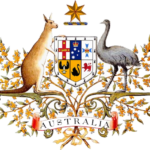Migrants an asset for Australia
More than 240 million people worldwide are international migrants. Alan Stevenson explains why the ones coming to Australia are exactly the type of people we need, particularly in our small country towns.
History tells us that humans have always migrated, initially from out of Africa. It gets more complex when one group attempts to move in on another. In the past, either more land was made available for the newcomers, or the original inhabitants were forced to leave, or there was war. Recently surveys have been conducted both in Europe and the United States which show that whenever migrants are accepted into the local communities, both parties benefit.
Migrants are usually either economic refugees or have been forced from their own countries by war or political problems. In both instances there is a great deal of psychological pressure on them to ‘make good’ in their new environment. In doing so, they increase the wealth of the host country, send money back home, and increase their own wealth and safety.
“In a survey of 15 European countries, the UN’s International Labour Organisation (ILO) found that for every 1 per cent increase in a country’s population caused by immigration, its GDP grew between 1.25 and 1.5 per cent. The World Bank estimates that if immigrants increased the workforces of wealthy countries by 3 per cent, that would boost world GDP by $356 billion by 2025. And removing all barriers to migration could have a massive effect. A meta-analysis of several independent mathematical models suggests it would increase world GDP by between 50 and 150 per cent.” (New Scientist 9 April 2016)
The migrants coming to Australia tend to be the people of the land (farmers, small business people, healthcare workers). Surely these are exactly the type we need in our small country towns. The fact that they often cannot return home acts as a great incentive to assimilate. It would be surprising if they were unable to teach our locals new or different ways of attacking problems of drought, salinity and just making do with whatever is locally available.
I cannot believe that country people are too intolerant to accept different religions or ways of thought or dress. The problems occurring, around some inflammatory speeches in front of mosques for instance, appear to have been exacerbated by small groups of individuals imported for that very reason. I would like to see us as a more tolerant society.

Alan Stevenson spent four years in the Royal Australian Navy; four years at a seminary in Brisbane and the rest of his life in computers as an operator, programmer and systems analyst. His interests include popular science, travel, philosophy and writing for Open Forum.















Max Thomas
October 19, 2016 at 12:45 pm
Symbiotic migration
While in Zimbabwe before Mugabe made his intentions as clear as they are with hindsight, I became friendly with some Shona people. One of them was the keeper of knowledge and a great storyteller. He told me that his people were originally settled and they farmed near a lake which supplied fish and also water for their crops. Another nomadic and more warlike tribe visited them seasonally, just in time for the harvest. My friend said that their relationship with this other tribe was good because they gave protection. He said that they were happy to feed them "so they would feel strong enough to go away".